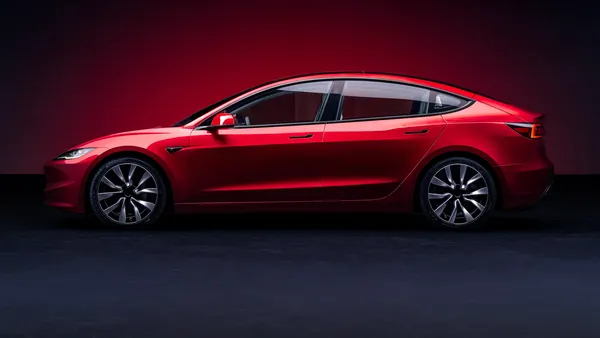Editor's note: This story is part of the WardsAuto digital archive, which may include content that was first published in print, or in different web layouts.
BAVANS, France – Faurecia SA, the global leader in vehicle-exhaust systems since the February acquisition of Emcon Technologies LLC, is moving all its basic research to its newly refurbished research center here in eastern France.
Some managers from Emcon, which was based in Troy, MI, and had its research and design center in Columbus, IN, already have been moved to France, and Europeans have been sent to North America.
The exchanges are meant to hasten the integration of Emcon, the former No.3 vehicle-exhaust-systems supplier, into Faurecia, the former No.2. Together, they leapfrog Tenneco Inc. into the No.1 spot, with pro-forma sales of €5.2 billion ($7.0 billion).
The combined Faurecia Emission Control Technologies will have sales this year of about €5.2 billion ($7 billion), one fourth of the market in which it competes, Faurecia CEO Yann Delabriere says.
Where vehicle-exhaust systems used to account for only 16% of Faurecia sales, they now jump to 35%. As emissions rules get tougher in the years to come, sales could reach 40% of the company total. Faurecia also makes front ends, interiors and seats.
The €5.2 billion includes precious metals used in catalytic converters, which are purchased by the clients, so the costs just pass through the supplier.
For 2008, the most recent average year, Faurecia-Emcon sales were €2.3 billion ($3.1 billion). Tenneco Inc. earned €1.5 billion ($2 billion) and No.3 Eberspaecher GmbH €900 million ($1.2 billion).
The R&D center here is outside the village of Bavans, with about 4,000 residents, in the center of a major French-German vehicle manufacturing region.
Faurecia has spent about half of a €12 million ($16 million) fund to expand the center, adding a new open-space building for 200 engineers and equipment ranging from dynamic test beds to new spectrometers and a Cambridge electron microscope. More equipment and some 80 engineers will be added over the next two years.
Faurecia was the technology leader for diesel particulate filter, developed with PSA Peugeot Citroen a decade ago. To keep its leadership position, it is counting on new technologies such as recovering energy from exhaust heat.
Not many suppliers of any product have a global 25% market share.
“To keep our market position, we have to offer excellent equipment and be competitive,” says Jean-Marc Hannequin, Faurecia executive vice president in charge of the emissions control business.
“Today, our technology is part of our strength. And to keep our excellence on cost, we have an advantage, because we have standardized products and our purchasing costs are low.”
The global nature of the industry also helps Faurecia, he says, because the company has manufacturing plants in all the major automotive regions except Japan.
Ford Motor Co. is the biggest client, followed by Volkswagen AG, PSA, and General Motors Co., each with more than €200 million ($267 million) in business annually.
Delabriere says the emissions-control business, where Faurecia competes, will grow from its €21.3 billion ($28.5 billion) level in 2008 to €34.5 billion ($46.1 billion) in 2014, when Euro 6 rules force diesels to use expensive oxides-of-nitrogen aftertreatment, and as high as €40.7 billion ($54.4 billion) in 2020 when a Euro 7 standard could appear.
Europe already is aiming for fuel efficiency of 95 g/km in 2019, the equivalent of 59 mpg (3.8 L/100 km) for gasoline.
Faurecia produces manifolds, pipes, catalytic converters, particle filters and mufflers, but so far does not make exhaust-gas-recirculation equipment or sensors, two other parts of the system.
However, Hannequin says the company is developing what he calls “long EGR,” which would divert low-pressure, lower-temperature exhaust gases back to the engine.
For recuperating energy from exhaust heat, Faurecia already makes a system that heats water to help bring a diesel engine and car interior to their operating temperature more quickly in cold climates, first offered on the Citroen C4 Picasso.
Engineers are working on heat-to-electricity and heat-to-mechanical energy, in longer -erm research. They also are working on acoustics, engine performance, emissions, durability and reduction of mass.
Emcon was Arvin Meritor’s emissions-control business until 2007, when it was sold to JP Morgan’s investment arm One Equity Partners for $310 million. In February, One Equity Partners sold the business for 20.9 million new Faurecia shares.
In addition, the investors have two seats on Faurecia’s board, which is controlled by PSA, which holds 57% of the shares compared with One Equity’s 13%.
Emcon brings Faurecia into the commercial-vehicle market for the first time, including a joint venture with Cummins Inc. in North America.
While decisions on commercial-vehicle R&D have yet to be made, some research may stay in Indiana, as well as development work. Heavy-duty clients include Cummins, DAF Trucks NV, Iveco SpA, Volvo Trucks AB and John Deere.
Delabriere says Faurecia will have only about €100 million ($135 million) in heavy-duty sales this year, in a market worth €4.5 billion ($6 billion), but the market is expected to more than double by 2020.
Many heavy-duty engine makers now do their own exhaust systems, say Delabriere, but “they will need specialists to meet the growing technical demands, which will bring the market towards us.”









